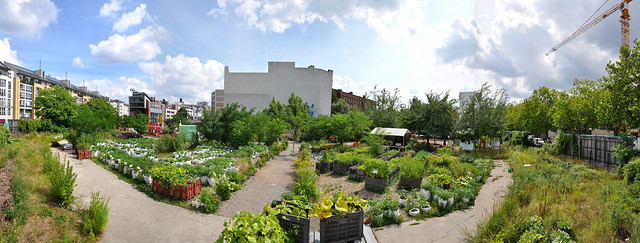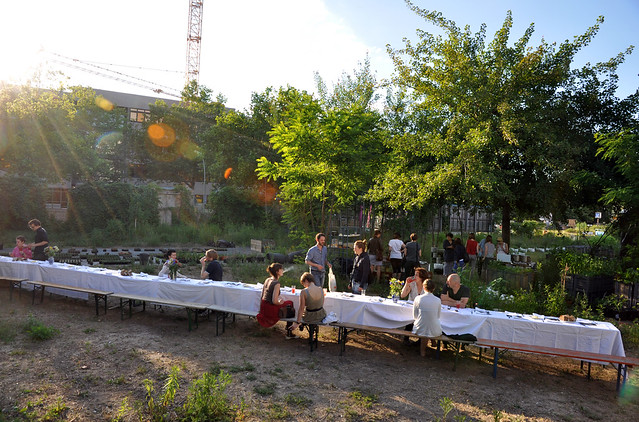
To Plant Ideas and Let Them Grow: Prinzessinengarten, Berlin
The following post comes courtesy of Global Site Plans' The Grid. CNU and Global Site Plans recently teamed up to syndicate Grid content, as its contingent of writers presents a view on the opportunities and issues of urbanization all across the world. CNU will carry select posts from the Grid direct on the CNU Salons.
***
To Plant Ideas and Let Them Grow: Prinzessinengarten, Berlin
Want to grow your veggies and eat them, too? While, until recently, the idea of combining urbanity with gardening seemed like a strong contradiction, urban gardens have started popping up in central city spaces around the world. One of the pioneering urban gardening projects is Prinzessinengarten in Berlin, Germany.
Since summer 2009, this central Berlin space of 65.000 sq ft. has been turned into a small urban oasis. Already on the first day, 150 volunteers showed up to clean up the run-down piece of land, which some individuals had begun to use for growing their own vegetables and herbs. The project’s future has been uncertain from day one, which is why plants are grown in large bags and bins, ready to be moved somewhere else if necessary. But now, three years later, it seems that Prinzessinengarten has a future after all. Volunteers collected 30,000 signatures for a petition that convinced the Senate not to sell the land to a private investor,allowing the environmental non-profit Prinzesinnesgarten to stay in their urban paradise a little bit longer.
What do you think – is it a good idea to grow your own vegetables in the middle of the city?
First reaction of many would be “Yes, I’d prefer to grow my own vegetables because then I can control the amount of pesticides use, I can protect the environment by not importing them from a faraway places, and, of course, self-grown vegetables taste twice as good don’t they?”
On the other hand, growing your own food takes time and a lot of care. Who is ready to devote time, on a daily basis, to growing veggies? Is the city even clean enough to produce uncontaminated products?
Prinzessinengarten goes beyond the mere growing of plants – it created a drastic positive change to the neighborhood’s appearance and developed into a relevant space for educational and social projects, teaching children and adults about gardening and biodiversity.
Do you know of other urban gardening projects?
To read the original post, written by Luise Letzner, visit Global Site Plans.




Comments
Write your comments in the box below and share on your Facebook!